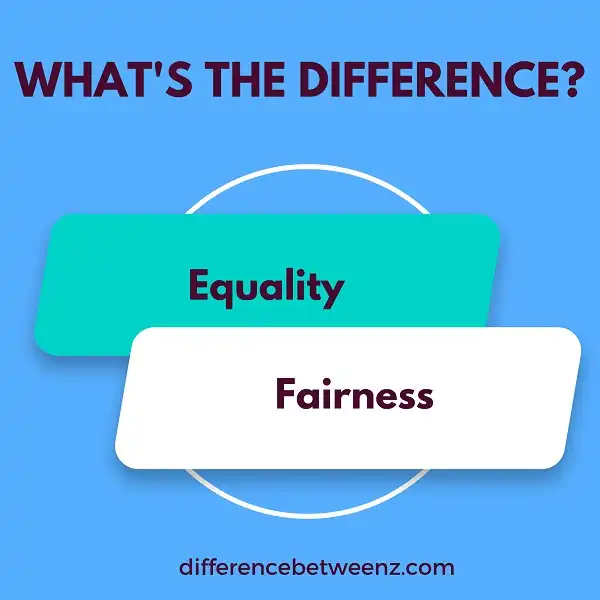When most people think about equality and fairness, they think these concepts are one and the same. However, there is a difference between equality and fairness, which is something that needs to be taken into account when it comes to social justice. In this blog post, we will explore the differences between these two concepts and how they can be applied in practice.
What is Equality?
Equality is the state of being equal, especially in status, rights, or opportunities. Equality includes the idea that all people are entitled to the same treatment and resources, without discrimination. The concept of equality has been important throughout history, particularly in the fight for civil rights and social justice. Today, Equality is still an important value in many societies. It is used to promote fairness and opportunity, and to protect the rights of minorities. Equality is also a central principle of democracy, as it ensures that everyone has an equal say in the decisions that affect them. Equality is therefore essential for both individuals and society as a whole to flourish.
What is Fairness?
Fairness is often thought of in terms of equal treatment. That is, giving everyone the same chance or opportunity regardless of race, gender, or other personal characteristics. However, fairness can also be understood as proportional treatment. This means taking into account the different abilities and needs of individuals when making decisions about how to distribute resources. For example, it would not be fair to give the same amount of homework to a fifth grader and a tenth grader. The older student would likely be able to complete the assignments more quickly and with less assistance.
Fairness also requires taking into account the circumstances of each individual. For example, it would not be fair to judge a student who missed school due to illness by the same standards as a student who was able to attend all classes. In this case, the sick student would likely have a lower grade point average, but that should not be held against them. Fairness is therefore about making sure that people are treated equitably in light of their individual circumstances.
Difference between Equality and Fairness
Equality and fairness are often used interchangeably, but there is a distinct difference between the two concepts. Equality refers to the state of being equal, while fairness refers to the state of being just and unbiased. Equality is about treating everyone the same, while fairness is about ensuring that everyone has an equal opportunity to succeed.
Equality is a goal that can be achieved through laws and regulations, while fairness is something that must be fostered through open-mindedness and understanding. Equality is about sameness, while fairness is about equity. Equality is about giving everyone a level playing field, while fairness is about making sure that everyone has a fair chance to use their skills and abilities to win. Equality and fairness are both important concepts, but they have different definitions and applications.
Conclusion
It’s important to understand the difference between equality and fairness when it comes to your business. Equality is about everyone being the same, while fairness takes into account each person’s unique situation. When you strive for equality in your business, you may be doing more harm than good. Fairness, on the other hand, can help you create a more equitable and successful company.


